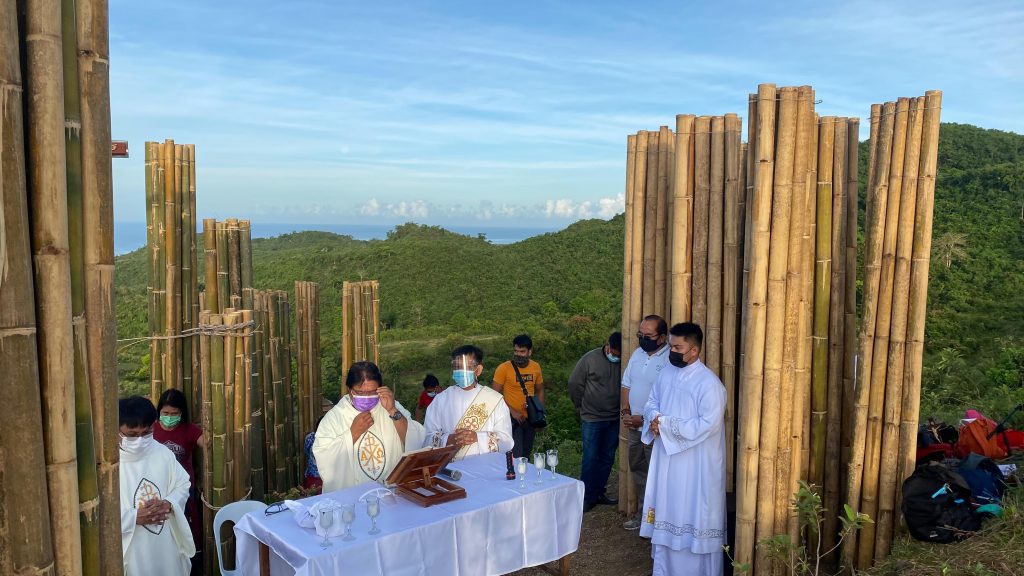Earlier this year, the world rejoiced as the Perseverance Rover project landed on the red planet. Media reported that the National Aeronautics and Space Administration spent about $2.4 billion to build the spacecraft and another $300 million to operate the rover on the surface of Mars.
It was totally fine to invest in research to discover opportunities that would benefit humankind, but what’s disappointing is we lost sight by discovering possible life on other planets while forgetting what we already have.
A number of political figures turn a deaf ear while indigenous communities and local folks suffer as a result of ecological indifference. For this reason in my previous piece, the ecology ministry at the Parish level is highlighted to strengthen local communities towards an integral ecology. But the next question to ask is “how should this ministry function?”
A microbiologist friend one day shared with me his personal thoughts on tree-planting activities conducted by some prominent personalities. It turned out to be a laughingstock when he described these as purely ceremonial and is a “scam” for they do not provide concrete action plans to stop global warming.

On a personal note, tree-planting is not a problem, in fact, Republic Act 10176 or the Arbor Day Act of 2012 provides that “All able-bodied citizens of the Philippines, who are at least twelve (12) years of age, shall be required to plant one (1) tree every year.”
The thoughts on whether a tree-planting activity is ideal or otherwise, is not a question, but how to keep these trees alive. The same goes for the institution of ecology ministries in the parishes: are these designed solely to plant trees?
In a yearbook article published by the Jesuits’ general curia in 2014, the publisher writes about three aspects of the Church’s stance on ecology; first is the care for nature, second is the “defense of the vulnerable,” and finally, “development of new lifestyle.”
The first aspect is generally the root of why the ecology ministry exists – that is the protection of the environment. In the Christian tradition, we owe our identity back to the Creator, his creations were made to reflect the glory of God, and the “more complex they are the greater is their capacity to reflect the Divine.”
In addition, ecological challenges are interrelated to the community. People who are most exposed to the consequences are the poor and the vulnerable, for this reason, most populations in developing countries like ours, need not debate over the existence of global warming for we are able to experience and witness its impact before our own eyes.
Finally, according to the said yearbook, our commitment to integral ecology has something to do with a new lifestyle. As society becomes too industrialized and technology advances from time to time, a new lifestyle conveys innovative means or routines that will preserve the balance between human necessity and the integrity of the environment.
Ecology ministry has no defined structure yet. Unlike other ministries in the Church such as the liturgy and the youth, these have common services such as weekly or daily assistance at Mass and youth camps respectively. Education is focused on catechesis, pre-Cana, and pre-baptismal seminars.
There is, however, a newly-recognized social communications ministry, which is an independent and all-encompassing entity that provides communication support to all other ministries. Like social communications, the ecology ministry should be autonomous from the common social action ministry and must cater ecological assistance to other parish groups as well.
For this reason, those three aspects can serve as a general program framework of parish ecology ministry. Moreover, with the propagation of the seven Laudato Si’ Goals and the launching of Laudato Si’ Action Platforms, ecology ministries in the parishes may now acquire the foundation of its programs and activities.
As spearheaded by the Vatican’s Dicastery for the Promotion of Integral Human Development, Pope Francis’ encyclical letter, Laudato Si’, has seven goals to consider. These are to hear the cries of the earth and the poor, ecological education, spirituality and economics, community engagement, and the adaptation of simple lifestyles.

If social communications speak for the parish and its ministries, the ecology ministry guards the parish against environmental indifference, keeping eco-stewardship in the life of the parish. This ministry can assist those in charge of catechesis and social communications in the ecological education of the parishioners; it can extend a hand to the social service ministry on activities that help the poor communities.
In fact, disaster risk reduction management should ideally be assigned to the ecology desk. Another is the assistance to the liturgical committees in integrating ecological spirituality among the worship activities of the parish. Coordinators and volunteers should go to the level of basic ecclesial communities and other adopted populations in educating the faithful on integral ecology and in campaigning for simple lifestyles.
In developing this ministry’s structure and programs according to the said goals, the ecology ministry appears to be capable of doing things more than the usual tree-planting activities. One question that may arise is the risk of overlapping other groups especially if these ministries have existing programs that fulfill some of Laudato Si Goals. Like in the case of social development ministry, which engages itself with the poor and the community. Another is that some ministries might have more members than others and would no longer need assistance from the ecology ministry.
The response to these questions is similar to the situation of SoComm. Like this ministry, social communications provides communications support to other ministries like live streaming of liturgical activities, but it does not have to interfere with the liturgical norms implemented by the Church. So is the ecology ministry, which is established to provide ecological support to the life of the parish.
In addition, ecology ministries need not propose programs that will fulfill all seven Laudato Si’ Goals, they could simply design their programs that are focused on two to three goals, depending on what other parish ministries lack.
Whatever challenge the institutional parish community provides, the identity of this ministry as an ecological guard should come above all, this is to ensure that components of Laudato Si’ Goals are kept by other ministries and the entire parish community.






0 Comments